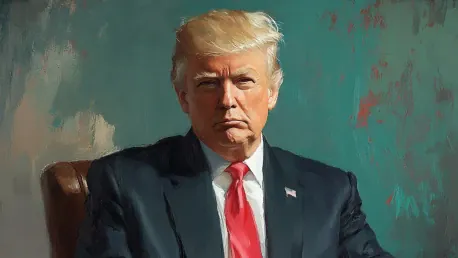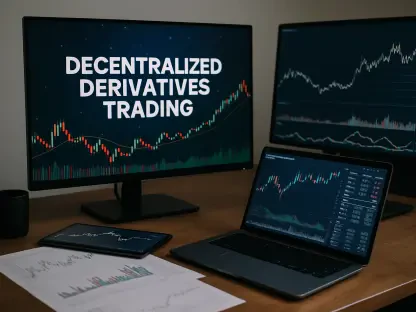As uncertainty looms over President-elect Donald Trump’s potential policy shifts, Secretary of State Antony Blinken has embarked on a critical journey to Brussels to discuss support for Ukraine with European allies. This trip, Blinken’s first overseas since Trump’s election victory, is a pivotal moment aimed at securing continued international backing for Ukraine amidst growing concerns about how Trump’s administration might alter current commitments. It signifies a strategic move by the Biden administration to ensure that Ukraine remains fortified against Russia’s aggression, offering reassurance to both Ukraine and European allies in a time of potential transition.
Reinforcing Ukraine’s Defense Against Russia
Biden’s Efforts in Expanding NATO and Isolating Russia
President Joe Biden has made significant strides in strengthening the security landscape for Ukraine, primarily through expanding NATO’s reach and orchestrating a global effort to isolate Russia following its aggressive 2022 invasion of Ukraine. The Biden administration’s agenda has been clear—mobilizing international support to stand firm against Russian advances and ensuring that Ukraine receives the military aid necessary to defend itself. As Trump prepares to assume office on January 20, Biden’s team is expediting military assistance to Ukraine, attempting to buttress its defenses before any potential policy reversals by the incoming administration.
The expansion of NATO and international condemnation of Russia under Biden have been pivotal. These strategic moves not only isolated Moscow but also unified Western allies in their commitment to Ukraine’s sovereignty. This unity has been critical, given Russia’s continuous military pressure along a vast front line against Ukraine. The timing of Blinken’s visit to Brussels underscores the urgency with which Biden’s administration views the necessity of maintaining, if not increasing, the defensive capabilities of Ukraine. Reinforcing these alliances is seen as a bulwark against the unpredictable nature of Trump’s policy decisions, especially when it comes to support for Ukraine and NATO’s role.
Concerns Over Trump’s Stance on NATO and Ukraine
The unease among European allies regarding Trump’s potential policy stance stems from his documented critical views on NATO and the level of support rendered to Ukraine. Throughout his campaign and prior public statements, Trump has frequently vocalized his demand for NATO members to increase their defense spending, specifically advocating for a commitment of 3% of their GDP. He has also hinted at withholding defense support from countries that fail to meet this target, which could destabilize the current balance of power in the region and inadvertently embolden Russia.
Trump’s rhetoric has raised alarms about the continuity of the transatlantic alliance’s support for Ukraine. European leaders are acutely aware of the potential shift and are preparing contingencies to ensure that support for Ukraine does not falter. The discussions Blinken is scheduled to have in Brussels are not merely about offering reassurances but also about laying groundwork for a robust European-led initiative. This initiative would aim to take on greater responsibility for Ukraine’s defense, ensuring there are mechanisms and commitments in place that can weather possible shifts under Trump’s administration.
Strategic Diplomatic Efforts and Sanctions on Russia
Potential New Sanctions and Enforcement of Existing Ones
In addition to military support, the Biden administration has also been exploring the possibility of imposing new sanctions on Russia and tightening the enforcement of existing ones. These sanctions are designed to pressure Moscow into ceasing its hostile actions towards Ukraine. However, as Blinken executes these delicate diplomatic maneuvers, there is a significant concern that the steps taken by the outgoing administration might be unraveled by the incoming Trump officials. This potential rollback poses a complication in maintaining a unified and continuous strategy against Russian aggression.
The strategic deployment of sanctions has been an essential tool in the international community’s approach to curbing Russian adventurism. These economic and political pressures aim to destabilize the financial underpinnings of Russia’s military operations and signal international disapproval. If these measures are diluted or reversed, it would not only undermine current efforts but also potentially embolden Russia by projecting an image of a divided and inconsistent Western policy. Thus, Blinken’s discussions in Brussels are critical in aligning European allies around a unified strategy that can withstand administrative changes in Washington.
European Allies Preparing for Policy Changes
Amid rising uncertainty over how President-elect Donald Trump’s potential policy changes might unfold, Secretary of State Antony Blinken has set off on an imperative journey to Brussels. The purpose of Blinken’s visit, his first international trip since Trump’s election win, is to engage with European allies on bolstering support for Ukraine. This effort is crucial in the face of concerns about possible shifts in Trump’s administration that could impact existing commitments. Blinken’s mission is a strategic move by the Biden administration to ensure Ukraine continues to receive robust international backing against Russian aggression. This initiative aims to provide reassurance not only to Ukraine but also to European allies who are apprehensive about a possible transition period. By reinforcing alliances and securing commitments, Blinken’s visit underscores the Biden administration’s determination to maintain a united and resilient front in support of Ukraine during these uncertain times.









